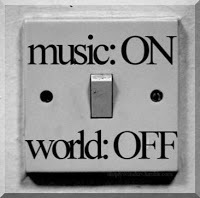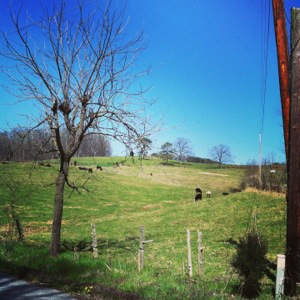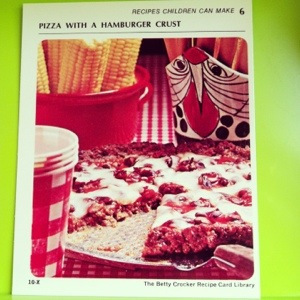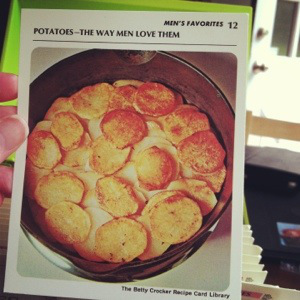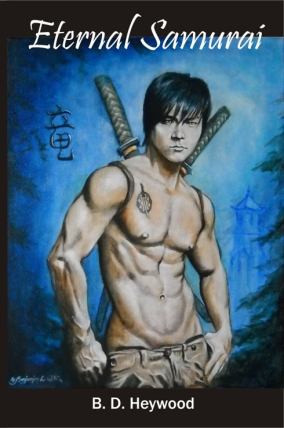Leta Blake's Blog, page 90
April 29, 2013
Fear & Barebacking Research
“The terrible thing in this world is that everyone has his reasons.”
Octave, The Rules of the Game, Jean Renoir, 1939
I just finished a short story that I’ll be submitting for a call at the end of May. I’ve still got some editing to do of the draft, but I’m in a place where I think, or hope rather, that I’ll be able to get it done in time.
The story was inspired by some research I did into fear and barebacking culture awhile ago. I don’t know if you could look at this story and from the outside see that that the inspiration came from researching risky sex within the gay community, and specifically the barebacking community. It’s definitely got elements of risky sex in it, but the choices made do not seem to have much to do with barebacking on the surface.
Still, the question of what drives people to make choices that seem to endanger them in some way is one that I found fascinating and which informed this story. With that in mind, I’m going to share a few of the readings I found had the most impact on this story and on my ideas about fear. I am not in any way claiming that I agree with any of the statements below. They only served to inspire aspects of the story and nothing more.
1. Another of the men interviewed by Carballo-Dieguez, illustrates the points that Crossley makes about the power of barebacking as a transgressive act. It is exhilarating, it is the forbidden thing, it is like a drug, it is what you are not supposed to do, it’s getting away with murder. — Why Do Men Bareback? No Easy Answers.
2. One of the ways that internalized homophobia may play out is an unconscious sense that the individual is unimportant, undervalued, and not worth very much, thus increasing his sense that he is expendable, and so too are the men with whom he has sex and from whom he seeks love and validation.
“What we have learned from Roland Barthes as from Michel Foucault and Oscar Wilde (albeit differently in each case) is that oppression inheres in those subjected to it as their or our identity, and must eventually be experienced and contested there, and never more so than when this subjection involves desire. Identity for the homosexual is always conflicted: at once ascribed, proscribed, and internalized, it is in terms of identity that self-hatred, violence, mutilation, and death have been suffered” (Dollimore, 1998, pp. 325-326).
Los Angeles writer and therapist Douglas Sadownick notes that “sex often is a matter for the unconscious”
One of the basic tenets of psychoanalytic theory that Freud (1920) formulated concerns sexuality overlapping with a dimension of negativity. Freud originally called it “the death instinct,” but is now commonly referred to as “the death drive.”
In short, taking the risks associated with barebacking is actually the way some gay men are trying to take care of themselves and meet deep and urgent needs and desires.
3. Tim Dean (2000) writes: “Most people can’t comprehend why anyone would risk death for a good fuck. From a certain viewpoint, unsafe sex appears as inconceivably self-destructive behavior. Indeed, while such health-threatening practices as smoking, drinking, and drug abuse must be indulged in repeatedly over a substantial period before they are likely to cause harm, HIV infection can result from a single unprotected encounter. Casual, anonymous sex without a condom seems suicidal” (p. 139). But the long-term effects of HIV infection on health are easily denied when faced with the immediacy of sexual pleasure, particularly if one is using drugs that fog one’s judgment. — Why Do Men Bareback? No Easy Answers.
4. Vincke and colleagues (2001) found that “the incorporation of semen is an important value for many in gay cultures, a means of showing devotion, belonging, and oneness. Unsafe sex can therefore be an expression of positive values and of good feelings” (p. 58). There is something deeply erotic, profoundly connecting and, some feel, even sacred about one person giving his most private and special fluid, semen, to the other as a gift of love and a symbolic joining of two souls. The many levels of meaning and special significance that giving and receiving of semen has for gay men cannot be underestimated as a contributing factor to the rise in barebacking — especially in romantic couples,
Some have described drinking semen as literally ingesting the vitality, strength, manliness, or very essence of the man whose semen they either drank or received anally. There are men who feel that sharing their own or receiving the semen of a lover is a visceral as well as symbolic gift of love or a spiritual communion. There are those who revel in experiencing the esthetic and sensual pleasures in giving or receiving semen. By no means is this a comprehensive list. The meaning of sharing semen between two men is as varied as the men who engage in this act. — Why Do Men Bareback? No Easy Answers.
5. Our minds are conditioned – that is an obvious fact – conditioned by the culture, the society, influenced by various impressions, strains, stresses, relationships, economic, social, climatic, educational, religious conformity, sanctions and so on. And our minds are trained to accept fear and escape, if we can, from that fear, never being able to resolve, totally and completely, the whole nature and structure of fear. So our first question is: whether the mind, so heavily burdened, can resolve completely, not only its conditioning, but also its fears? Because it is the fear that makes us accept conditioning.
So, can the mind actually ever be free of fear? That seems to me to be one of the most primary, essential, questions which must be asked and which must be resolved, for any person who is at all serious. There are physical fears and psychological fears. The physical fears of pain, having had pain and the repetition of that pain in the future; the fears of old age, death, the fears of physical insecurity, the fears of uncertainties of tomorrow, the fears of not being able to be a great success, achieve and so on, not being somebody in this rather ugly world; the fears of destruction, the fears of loneliness, not being able to love or be loved, and so on; the conscious fears as well as the unconscious fears. Can the mind be free, totally, of all this? And if it cannot, then such a mind is incapable, because it is distorted, it is incapable of perception, of understanding, of having a mind that is completely silent, quiet; it is like a blind man seeking light and never finding light, and therefore inventing a ‘light’ of words, concepts, theories.
So how is a mind which is so heavily burdened with fear, and with all its conditioning, ever to be free of it? Or must we accept it as an inevitable thing of life? – and most of us do accept it, put up with it.
So, now what shall we do? How shall I, as a human being, and you as a human being, be rid of this fear, the total fear, not a particular fear, but the whole nature and structure of fear? — To Be Human, J. Krishnamurti


April 25, 2013
Three Songs of the Month
I’ve been sort of obsessing over three songs the last few weeks. Thought I’d share.
This world. This song.
Learn from us very much, look at us but do not touch.
Was it something I said? I know that it was something I said.


My World A Few Weeks Ago
What’s Fun About M/M? Hmm, Let’s See… (NSFW)
Betty Crocker Recipe Cards
April 24, 2013
Writer Wednesday: B.D. Heywood and Eternal Samurai
What are your names? And tell us a little about yourselves?
Arisada: Watashi wa Saito Arisada. I am Saito Arisada, but please, call me by my first name, Arisada. After all, we are friends here. I was born in 1155, the third son of a noble Japanese family. When I was nine, I was sent to the Buddhist temple at Mii-dera, just east of Kyoto, to become a Sōhei, a warrior monk. In 1180, during the Battle of Mii-dera, I was found near death by a vampire and turned.
Tatsu: Konnichiwa, hello. My name is Tatsu Kurosaki Cobb. I was born in Japan in 2000 (the Year of Tatsu), the oldest son of a Japanese mother and an American father. When I was ten, I moved to New Mexico to live with my uncle after my family was slaughtered by a vampire. I did not remember their deaths. My grandfather also lived with me, and we continued my studies of swordsmanship until he passed away while I was in college. When my memories of the night my family was slaughtered returned, I became driven by fukushū, revenge, and the need to know the reason why they died.
How did you meet? Was it love at first sight?
Arisada: Meeting Tatsu was rather complicated. I fell in love with him in 1172 when he was a youth named Koji Nowaki. After I became a vampire, I searched for Nowaki’s reincarnated spirit for eight-hundred years. I had vowed to kill Nowaki for betraying Mii-dera and me. When I saw him reincarnated as Tatsu Cobb, I realized I still loved him in his new form. However, I was oath-bound to slay Tatsu for revenge for my slain Sōhei brethren. But before I killed him, I wanted him in my bed just once.
Tatsu: Arisada saved my ass in a dark alley one night when another vampire jumped me from behind. Then he kissed me and disappeared. That kiss was so incredibly hot I felt it clear down to my toes and in a lot of other regions. It felt so familiar that it drove me nuts—until I discovered who and what he was.
If it wasn’t love at first sight, what changed?
Tatsu: No it wasn’t love at first sight for me, but it sure as hell was lust. Then the more I saw Arisada, the more I realized he embodied bushi damashi, the true spirit of a samurai. This forced me to accept he was not a vicious animal. He wants a world where everyone lives in peace. Then his avowals of love for me began to get to me. Not to mention he is hot!
What do you believe is your worst or most frustrating quality? What about his/hers?
Tatsu: Well, Arisada is—
Arisada: Please, be quiet Tatsu. I shall answer this first. After all, I am older. The most frustrating quality about Tatsu is his stubbornness. He is still young and naïve, and tends to jump into fights to save others without thought. I had to rescue more than once. Plus, he refused to accept that vampires are capable of love.
Tatsu: Okay, Arisada, you’ve had your say. There are times Arisada despises who he is. His nature as a vampire goes against the tenants of his Buddhist faith. He needs human blood to survive yet he grieves each time he causes the death of an innocent. That conflict is the source of so much of his self-loathing.
What is your best quality? What about his/hers?
Arisada: I wish to speak about Tatsu and allow him to speak about me. He is unbelievably brave and embodies all the qualities of a true samurai. He dedicated himself to redeeming his family’s name knowing it may cost him his life. He is also utterly adorable and the sexiest man on two legs I have ever met.
Tatsu: Okay, now you are embarrassing me. We were both raised as samurai warriors—
Arisada: And samurai never speak of their emotions? Silly boy, you know better.
Tatsu: Arisada believes everyone can be redeemed no matter how evil they are. Also, he loves humans for their effort to save beautiful things, like KubotoPark, in the midst of all this chaos and death.
If you could have one wish come true, what would it be and why?
Arisada: True harmony between vampires and humans.
Tatsu: That Arisada and I could always be together, which is not possible since his lifespan as a vampire is so much longer than mine.
***
About the Author
Tell us a little about yourself!
I was born in England, moved with my family to several countries before landing in the United States. I obtained a Bachelor’s in English and one in Secondary Education although I taught only briefly. My first passion is horses, and I raised and trained them for the show ring. I am single now but have children and grandchildren, all of whom know about my book.
After twenty-five years as a writer and editor for several national magazines, I felt I was totally burned out and retired. I was determined never to put another word down on paper, e-mails notwithstanding. That lasted all of three months.
One night at 2 a.m., I surfed onto the Sci-Fi channel and saw an anime that showed two men kissing. (I could not believe at my age, I’d never heard of much less seen a yaoi anime.) It was scorching! I was hooked and bought as many yaoi manga and anime as I could get my hands on. I love how they deal with some of the most complex and, in some cases, dark aspects of human nature yet still incorporate all the elements of romance. When I wrote my first fan fiction, I received many surprisingly positive and insightful reviews.
I began taking shinkendo classes and read The Tale of Genji by Murasaki Shikibu. I found the feudal Japanese culture to be incredibly fascinating, maybe more so because I am a Westerner. Later, I read the story about the Battle of Mii-dera and how the defeated monks committed seppuku. That historical event coupled with the idea of an story of eternal love led to my novel.
What makes your current offering a different and compelling read?
The theme is that souls who are truly in love will eventually find each other. Although Eternal Samurai is foremost M/M erotica, it is also an urban fantasy set in a dystopian world but with historical flashbacks. I avoided many of the tropes of vampire folklore—immortality, flying, religious inferences, death from wooden stakes, etc. Vampires must have blood to survive and it must be taken directly from a living human being. No blood-in-a-bag home delivery unless it is the pizza boy! Although faster and stronger than most humans, vampires will die if exposed to sunlight. The conflict between vampire and human is vicious and brutal, and is a major factor in the conflict between the two lovers. But never fear, there is plenty of romance, sex and more than a taste of BDSM.
What keeps you inspired?
I am inspired by the thought that there is a reader who will pick up my book and spend a night or two enjoy being immersed in love, passion, bloody battles and some really graphic sex. Well, that is part of my inspiration. I also love it when my characters take over and begin to act out their own story. I can’t wait to find out what they are going to do or say next. And I love language, how versatile it is. I love how words are so evocative and can bring worlds to life in such a manner that readers feel they are there.
How do you juggle writing and working outside the home? Or how do you juggle writing and your family life? Or writing, working, and family life?
As most of us, I’ve always had to juggle work, school, family, in addition to managing my horse farm and teaching youth to ride. I didn’t believe the time I suddenly had when I and my last two show horses retired three years ago. Well, semi-retired. I founded an editing and consulting business. The horses spend most of their time at pasture although we go for the occasional trail ride. I have always been involved in social advocacy so I volunteered for a GLBTQ youth organization and an equine rescue. Also, I took up shinkendo for recreation, which began my love affair with the Japanese culture. Then the writing bug hit.
What other book/series would you compare your current offering to?
That is a tough one. I would describe Eternal Samurai as cross-genre and am not sure what it compares with. There is so much in this the M/M supernatural genre I haven’t read yet. Instead, I’d love to discuss what influenced my work. (I hope it is okay to mention other books and authors here). I have been reading vampire, urban and paranormal fantasies for more than forty years. I love all things vampire.
My first exposure to supernatural M/M was Shadow Harvest by James Buchanan. One of his stories moved me so much that I sent the publisher a letter (talk about fandom!). First vampire book? Bram Stoker’s Dracula. Now, that’s a book rife with homoerotic suggestions. My first contemporary M/M vampire read was Jourdan Lane’s Bound by Blood series. Laura Baumbach’s Blood Claim was next. Hot! I read dozens more like it, some wonderful, some dull and formulaic.
Other influences include authors Marion Zimmer Bradley, Diana L. Paxson and Anne McCaffrey who created marvelous fantasies set in believable worlds. Worlds I’d love to live in. For real-life drama, I adore MZB’s The Catch Trap and Patricia Nell Warren’s The Front Runner. These benchmark novels attest to the fact that women can tell a sensitive yet powerful and emotional story from the POV of a gay man.
I devoured the Japanese novels Taiko by Eijo Yoshikawa and Cloud of Sparrows by Takashi Matsuoka (the English translation of course). Always looking for more like that.
However, my personal bravo goes to the manga/anime series Yami no Matsui by Yoki Matsushita, which was the magical wand that began my fiction writing. The dystopian world in Eternal Samurai was influenced by dozens of science-fiction novels but I feel it echoes the setting of the anime series Ai no Kusabi by Rieko Yoshihara. The use of the Japanese language and subsequent English meanings was influenced by the style of James Clavell’s Shogun. And I can’t resist a quick shout out to Buffy the Vampire Slayer for its sheer quirky, campy, bite-me enjoyment.
Elements of successful and popular M/M erotica stories showed me what worked. I am grateful for the success of so many of these books, especially those written by women. Finally, when I made the commitment to write a novel, I poured over Josh Lanyon’s Man Oh Man, Writing M/M Fiction for Kinks and Cash. Thank you Josh.
What is the most rewarding aspect of writing and/or publishing? The most terrifying/frustrating?
With writing, it is those rare moments when my Muse takes over. I am in an altered state, and the words just flow unimpeded from brain to keyboard. I usually emerge wondering where it all came from—but delighted with the results. Doesn’t happen very often. Mostly, writing is hard work but I am committed to creating something every day even if it isn’t what I can use.
As for publishing, the most rewarding is when a reader tells me they enjoyed my book. Not a rave review—although they’re incredibly affirming—but when someone lets me know my characters came to life, that the reader felt their emotions and couldn’t wait to find out what happens to them.
The most frustrating was almost getting accepted by three different traditional publishers. I said almost. Those high hopes were followed by some awful, I-have-no-business-writing-fiction lows. I received constructive feedback from two publishers that pointed out how my book does not fit the traditional M/M romance formula. However, the long periods between submittal and rejection showed me I did not have the luxury of time to wait for an acceptance by a publisher (I’m on the gracious side of middle age).
The most terrifying aspect is once I publish the book, it is no longer mine. It is now subject to others’ opinions.
What’s next for you?
Book Two. Although my books are not a series in the classical sense, the second novel Eternal Warrior, takes place in the same world. It is the love story between two men introduced in Eternal Samurai. I also have written a coming-out play in conjunction with a group that plans to stage our works for the GLBTQ community this summer.
I have several short M/M erotica stories for an anthology but want to include other writers. Still figuring out how to reach other authors who may wish to contribute. ***laughs*** My social-networking learning curve is barely above flatline.
Is there anything else you’d like us to know about you, your books, or writing?
Oh yes! There is a huge difference between writing non-fiction and fiction. During my career as a journalist, I won several press awards, none of which mean you-know-what in the fiction arena. Of course, fiction is more fun. But the most significant thing was I discovered that I am compelled to write fiction. The characters and stories demand to be told. I love the characters and dark world I have created, and plan on playing in it for as long as I am able.
What was your favorite thing about writing these characters?
Revealing the love between Arisada and Tatsu. These are not gentle characters; both are alpha males and oath-sworn enemies. I had to allow them to accept the love between them and yet not lose honor. Okay that might have been my favorite but the second was definitely the sex. Oh, I love writing the sex! Some readers may wonder how I, a bi-sexual woman—although I prefer the term genderqueer—could know what love and sex feels like for a gay man. But I have some amazing, loving, gay-male friends who not only shared with me how it feels to be in love, but were happy to demonstrate how it works. Or is that TMI?
What was the hardest part of writing this book?
Body counts. More dead guys at the end of a fight than live ones at the beginning. No, not really. The hardest thing is my compulsion to revise. A friend and fellow author says I suffer from OCED, obsessive compulsive editing disorder. Even after a professional editor proofed my book, I made revisions to the work. Later, when I corrected the errors in the first published edition, I still could not stop the compulsion to revise. I always feel my writing can improve, and I will never stop learning. It is the same with working with horses; you never stop learning about them.
What’s the coolest factoid that you discovered while doing research for this book?
One factoid that surprised me? Oh my gosh, where to start? Folklore about vampires in Japan did not exist until the late 1950s when Western vampire movies (based on classic 18th Century European folklore) introduced the mythology to Japan. Lucky for me and many of us, the Japanese have totally embraced the legend in so many creative ways including manga and anime.
What would your superpower be and why?
Oh to fly, no doubt. I have parasailed and flown a small aircraft and even bungee jumped (once in a moment of insanity) but it would be marvelous to soar through the clouds and view the entire panorama of the world below. Plus, with the cost of air fares these days, it would be handy since my family is scattered from England to New Zealand to South Africa.


April 23, 2013
40 years in a world which I cannot find a reflection of myself
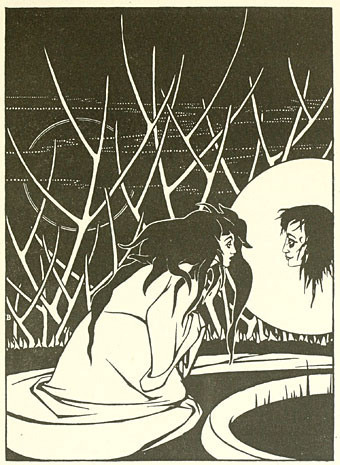



In past years I have always done a 30 day birthday countdown, giving myself a birthday month essentially. I didn't do it this year, not by design, but because this year seems to have snuck up on me, like where did the last three months of my life go? How is it April already? How is it the end of April already?
Happy birthday, my friend. May your wishes come true for all of us.
3 – Twenty Five Things Tuesday: Where the Orchids Grow
Sometime before I die, I want to attend a Tori Amos concert with my daughter. It’s been a dream of mine since before I ever had her, and when it became clear that she loves Tori Amos, too, my dream only intensified. One day, we will sit in the audience together. Maybe we’ll hold hands. Maybe she’ll ignore that her mommy cries half of the show. Or maybe she’ll cry too.


April 22, 2013
Flipping Gender Changes Meaning — Examples
A question I get a lot is “Why m/m? Why do you write so many books with gay main characters?” I’ve got a lot of reasons behind that, some of them incredibly deep and involved, based in feminism and gay rights and freeing the mind. But let’s leave all that behind for now, and focus on how things change meaning when you change the sex/gender of any particular person within a certain expected dynamic.
I feel like the easiest way to illustrate this is with music, so let’s start there.
Everyone knows Adele’s song “Someone Like You”. What happens to the meaning and to your understanding of the song when a man sings it without changing any lyrics.
Jay Brannan also did a cover of Lana Del Rey’s “Video Games”. When he performed it live, he said, “My favorite thing about this song is knowing that by singing it I make you all picture me in a sundress.” I practically jumped up and down when he said that because it old me that he gets it and isn’t just covering it because he likes it, but that he sees a wider implication in his choices.
Another example might be Tori Amos covering “I’m Not In Love”. As she said in an interview, people grew up in the 1970s and 80s slow-danced to this song, not really listening to the lyrics. She covered it to point out how the meaning of it changes when it’s sung by a woman. What opinions do we have about a woman who sings, “I’m not in love, so don’t forget it. It’s just a silly phase I’m going through, and just because I call you up, don’t get me wrong, don’t think you’ve got it made. I’m not in love, no no, it’s because…I like to see you, but then again, that doesn’t mean you mean that much to me.” How do we feel about her compared to how we might feel about a man singing the same thing.
And then there is the more obvious commentary of “Real Men”.
For me, aside from just wanting to tell good stories with characters that I like, I enjoy the challenging nature of writing away from expectations and exploring how changing the sex, gender, sexuality of characters changes the consequences of certain behaviors within relationships. As I said, this is only the tip of the iceberg, but it’s a nice fat tip. Enjoy it. (Heh. See what I did there? LOL!)



![Barebacking-Cal-AIDS-Flier_thumb[1]](https://i.gr-assets.com/images/S/compressed.photo.goodreads.com/hostedimages/1383040614i/6349809.jpg)
